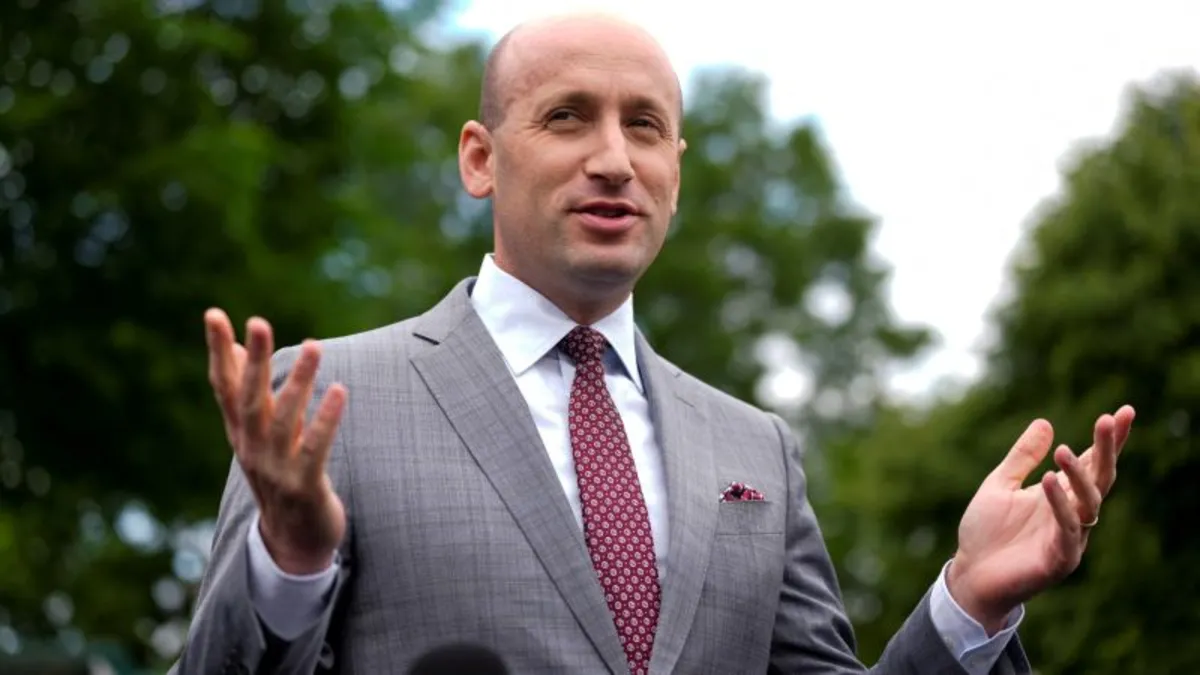
On Friday, White House deputy chief of staff Stephen Miller addressed reporters regarding the Trump administration's considerations surrounding the potential suspension of habeas corpus. This legal procedure allows individuals to challenge government decisions regarding their detention. Miller stated, “The privilege of the writ of habeas corpus can be suspended in a time of invasion,” emphasizing that “it’s an option we’re actively looking at.” He added that the outcome may largely depend on whether the courts act appropriately.
Under the U.S. Constitution, suspending habeas corpus is permissible only in situations classified as “Cases of Rebellion or Invasion,” where public safety may necessitate such action. It remains unclear whether this topic is under serious consideration within the West Wing. However, Miller’s remarks align with ongoing efforts by the Trump administration to leverage the current crisis of illegal border crossings, claiming it constitutes an invasion. This narrative supports the administration's attempt to bypass due process protections typically afforded to migrants.
The administration's arguments mirror its defense of Trump's invocation of the Aliens Enemies Act, which would permit expedited deportation of migrants without adhering to standard due process procedures. Multiple judges, including those appointed by Trump, have dismissed this claim, asserting that the administration has failed to demonstrate that the United States is experiencing an invasion by a hostile foreign power, as defined by the 18th-century statute.
If implemented, suspending the writ of habeas corpus would extend the Trump administration's powers, allowing the government to detain migrants without affording them the opportunity to challenge their detention. This action would essentially enable the administration to hold individuals without providing a valid justification. According to Ilya Somin, a law professor at George Mason University, “The writ of habeas corpus has been suspended a number of times, but only in times of actual war or actual invasion, narrowly defined.”
While the Constitution does not explicitly mandate that Congress must approve such a suspension, it has long been understood that legislative involvement would likely be necessary. This perspective was notably supported by the late conservative Justice Antonin Scalia in a dissenting opinion. Somin also noted that several states have attempted to assert that illegal immigration constitutes an invasion, allowing them to engage in war or bypass federal immigration enforcement laws. However, judicial rulings have consistently favored the federal government in these cases, ruling against the states.
Officials within the Trump administration have expressed frustrations regarding what they perceive as obstacles posed by the judicial branch in enforcing immigration laws. President Donald Trump has publicly criticized judges, with Miller describing adverse court rulings as a “judicial coup.” In response to these tensions, Chief Justice John Roberts emphasized the significance of judicial independence during remarks on Wednesday. He stated, “The judiciary is a coequal branch of government, separate from the others with the authority to interpret the Constitution as law and strike down, obviously, acts of Congress or acts of the president.” Roberts underscored that the judiciary's role is to “decide cases but, in the course of that, check the excesses of Congress or the executive.”